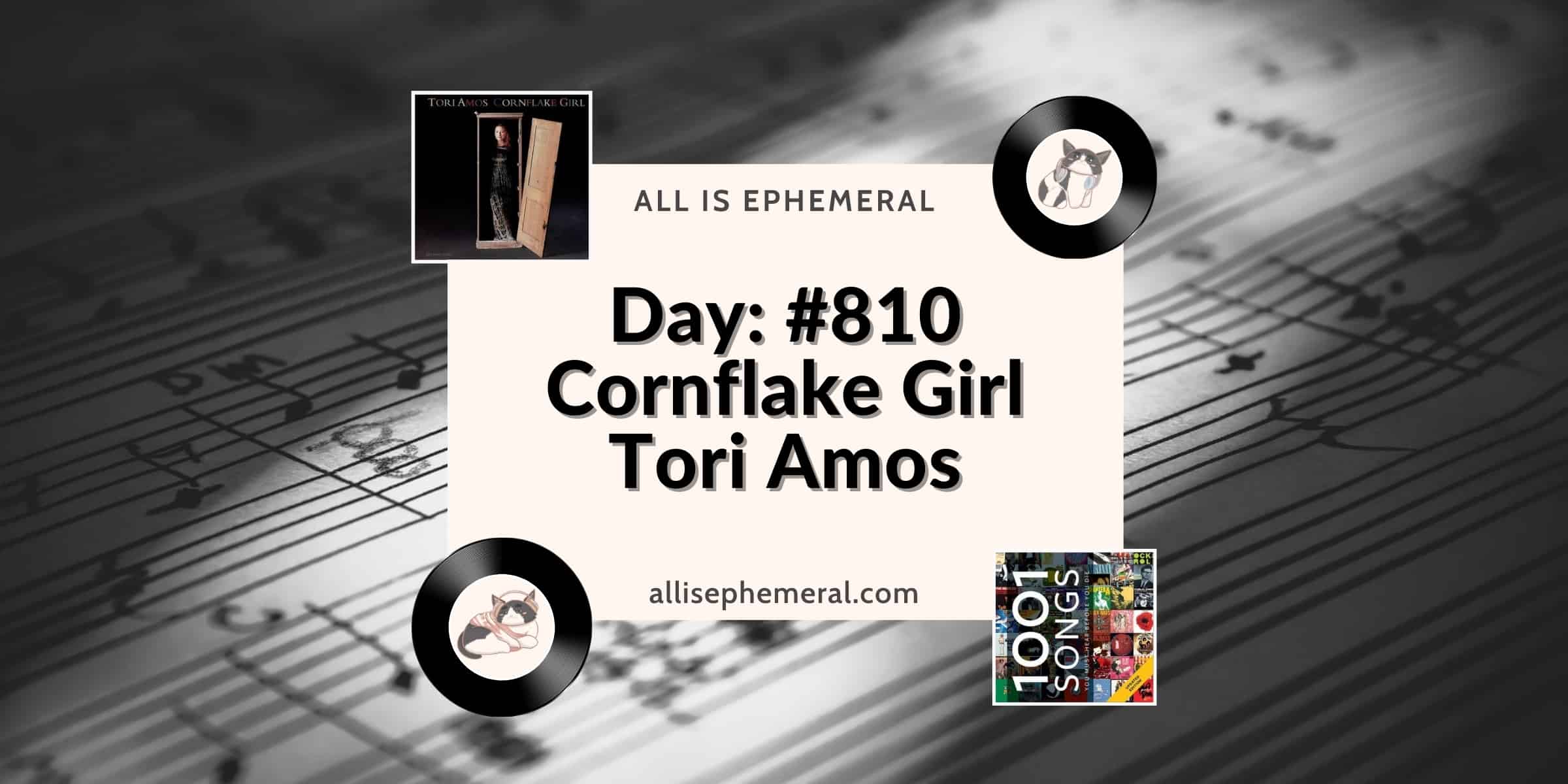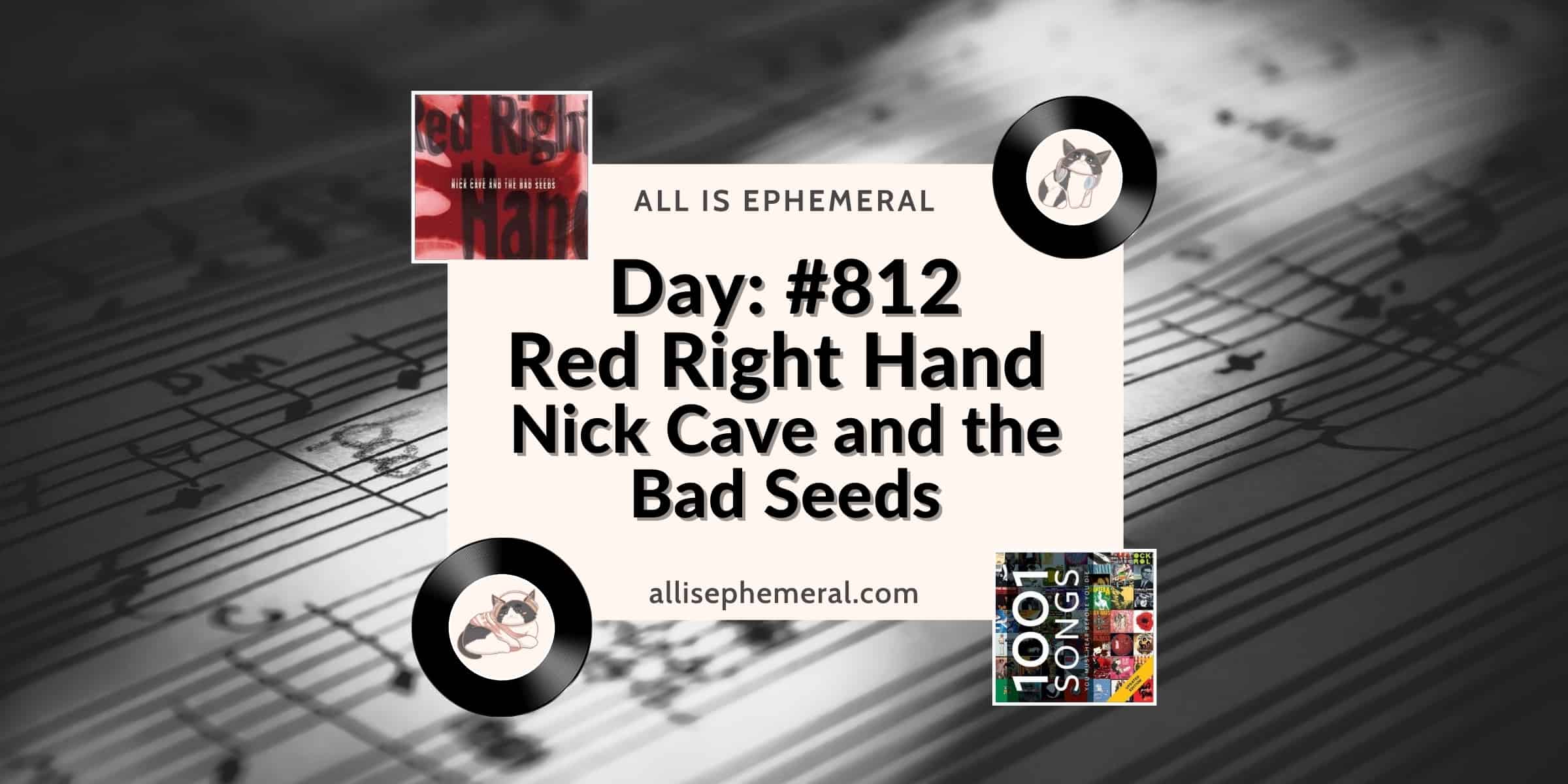
1001 Songs Challenge #811: Hallelujah (1994)
 On 11 February 2019 I set myself the challenging of reading 1001 Songs You Must Hear Before You Die by Robert Dimery (ed.) and following the book’s advice to the letter. I’ve previously read 1001 Films… and started 1001 Albums… but felt 1001 Songs… would be a sensible place to start for what I have in mind here.
On 11 February 2019 I set myself the challenging of reading 1001 Songs You Must Hear Before You Die by Robert Dimery (ed.) and following the book’s advice to the letter. I’ve previously read 1001 Films… and started 1001 Albums… but felt 1001 Songs… would be a sensible place to start for what I have in mind here.
My challenge is to read about one song per day and listen to it (YouTube and Spotify, I need you tonight!) before sharing my own thoughts. Some songs I will love, others I’ll hate, and I’m sure there will be those that leave me perplexed but listen to them I shall.
I’ll also try, and most likely fail, to pinpoint the best song from the 1001 on offer but I’m nothing if not foolhardy. Instead of one song, I’m predicting I’ll have about 100 favourites by the end and may have to resort to a Top 10 so far to maintain any semblance of sanity.
of one song, I’m predicting I’ll have about 100 favourites by the end and may have to resort to a Top 10 so far to maintain any semblance of sanity.
So long as I post everyday (including Christmas) then this challenge should come to an end on Wednesday 8 November 2021. Staying with the Barney Stinson theme I am hoping that the whole experience will prove to be…
Jeff Buckley – Hallelujah (1994)
Hallelujah (Leonard Cohen song) – Wikipedia
“Hallelujah” Released December 1984 Recorded June 1984 [1] ” Hallelujah” is a song written by Canadian singer Leonard Cohen, originally released on his album Various Positions (1984). Achieving little initial success, the song found greater popular acclaim through a recording by John Cale, which inspired a recording by Jeff Buckley.
We’re staying in the US today, dear reader, but leaving North Carolina and making our way over to California. Jeff Buckley was the son of singer, Tim Buckley, and began his career as a session musician before branching out in the early 1990s with live performances and the hope of landing a record deal. When we join Buckley in 1994 he has released his debut album, Grace, and 1001 Songs have gone with the song – Hallelujah.
Hallelujah was originally written by Leonard Cohen for his 1984 album, Various Positions. Not overly successful for Cohen, a cover by John Cale did better, and this led Jeff Buckley to record his own version. The song describes, using religious imagery, the breaking down of a relationship, one in which the woman is clearly in control and the man is very much at her mercy. The use of “hallelujah” was not intended as a praise of God here but more a celebration of one’s lover as a being to be worshipped essentially. The song evokes the nostalgia and bitter memories of how good things once were but now they have grown cold and stale. There does not appear to be any way back.
cover by John Cale did better, and this led Jeff Buckley to record his own version. The song describes, using religious imagery, the breaking down of a relationship, one in which the woman is clearly in control and the man is very much at her mercy. The use of “hallelujah” was not intended as a praise of God here but more a celebration of one’s lover as a being to be worshipped essentially. The song evokes the nostalgia and bitter memories of how good things once were but now they have grown cold and stale. There does not appear to be any way back.
There have been many versions of Hallelujah but you would be hard pressed to find a better version of the song than what Jeff Buckley came up with here. Delicate and slow, the song is initially soothing but all too soon Buckley tugs at the heart strings and belts out the vocals to this one superbly. It truly is a thing of beauty. Grace is regarded as one of the greatest albums ever recorded but Buckley himself, like his father Tim, would die young. While Tim succumbed to a heroin overdose at the age of 28, Jeff drowned in the Mississippi River in 1997 at the age of 30. It was ruled an unfortunate accident and with it the world lost a truly special talent whose legacy has grown in the years that have followed.
Favourite songs so far:
The Animals – House of the Rising Sun (1964)
Simon & Garfunkel – The Sounds of Silence (1965)
The Beatles – A Day in the Life (1967)
Pink Floyd – Wish You Were Here (1975)
Meat Loaf – Bat Out of Hell (1977)
Tracy Chapman – Fast Car (1988)
Jeff Buckley – Hallelujah (1994)





